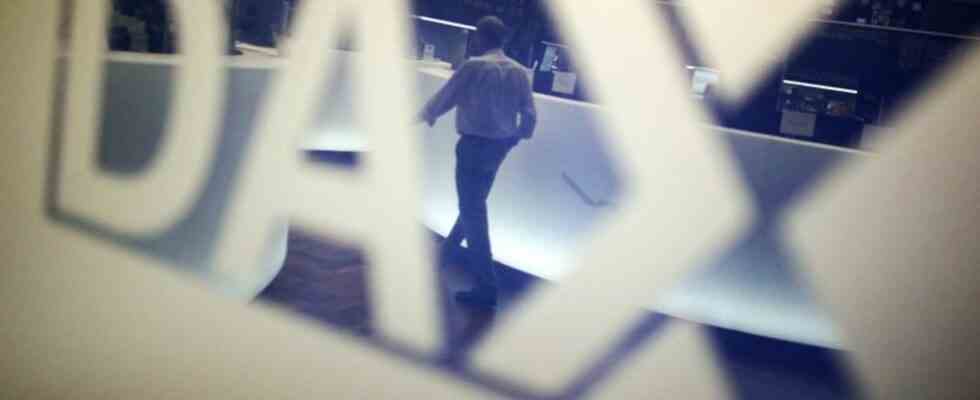Frankfurt Stock Exchange
Interest rate increase in Switzerland also burdens Dax
The Dax is the most important stock index in Germany. Photo: Fredrik von Erichsen/dpa
© dpa-infocom GmbH
With their fight against inflation, the central banks are putting increasing pressure on the stock markets. A surprise interest rate hike by the Swiss National Bank (SNB) weighed on Europe’s stock markets on Thursday.
With their fight against inflation, the central banks are putting increasing pressure on the stock markets. A surprise interest rate hike by the Swiss National Bank (SNB) weighed on Europe’s stock markets on Thursday.
In Frankfurt, the Dax dropped at times towards the 13,000 mark. Most recently, it lost 2.46 percent to 13,154 points. It is at its lowest level since early March.
The MDax fell by 2.64 percent to 27,051 points. The leading eurozone index, the EuroStoxx 50, fell by 2.1 percent. The Swiss SMI in Zurich fell to its lowest level since the end of 2020 and lost 2.5 percent. Given the brisk pace of monetary tightening, investors see the risk of a recession rising.
The SNB surprisingly increased the key interest rate by 0.5 percentage points and declared this as a measure against inflationary pressure. The Bank of England raised interest rates by 0.25 points, in line with economists’ expectations. However, she held out the prospect of further rate hikes.
In terms of individual values, online fashion retailers were in focus after a lowered forecast from Asos and a disappointing interim report from Boohoo. This put the titles of German competitor Zalando under pressure. The papers fell by more than 10 percent at the bottom of the Dax.
The shares of BASF and Uniper were also among the weakest, with losses of more than 6 and almost 11 percent respectively. The main reason is likely to be the further reduction in gas deliveries to Germany by the Russian company Gazprom. At BASF, for example, a possible stop in Russian gas supplies is threatening production at the Ludwigshafen chemical site.
In view of the uncertainty, the euro also fell. In the afternoon, the common currency cost $ 1.0420. The ECB had set the reference rate at $1.0431 on Wednesday. Prices on the bond market plummeted. In contrast, the current yield rose to 1.72 percent from 1.66 percent the previous day. The Rex pension index fell by 0.27 percent to 130.47 points.

